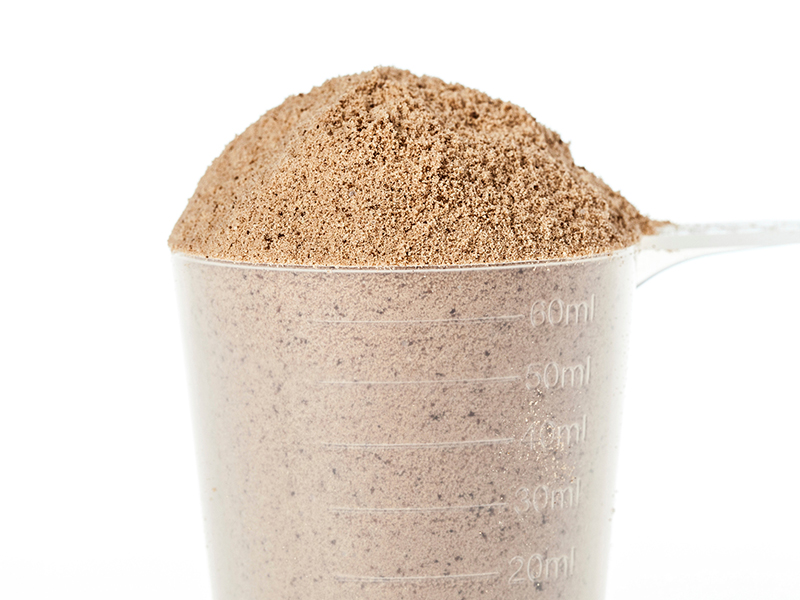Protein is one of three energy nutrients. But unlike carbohydrate and fat, its main purpose is to increase muscle mass while stimulating the body to make muscle protein. One gram of protein has 4 calories and is considered a trendy nutrient in the advent of high-protein, high-fat diets. The Institute of Medicine (IOM) recommends a minimum of 56 grams per day of protein for men.
Protein recommendations
Depending on a person’s activity level or health status, for an average healthy, sedentary adult, the recommended dietary allowance (RDA) is 0.8 gram/kg* of body weight in order to preserve and repair tissues. For endurance athletes, the amount is considerably more—1.2-1.7 grams/kg and 1.4-1.8 grams/kg for strength athletes. A 2011 study revealed that for healthy adults, 2 grams/kg is the maximum usable amount of protein.
According to Caroline Roessler, R.D., an in-store nutritionist for Martin’s Food Market in Midlothian, “Protein powders are best recognized as a supplement in the diet, and choosing the right protein powder for you means taking any allergies, intolerances or lifestyle choices into account.” For example, if you are vegetarian, then a plant-based powder may be a better choice, and if you are lactose intolerant then you would want to avoid a whey powder, says Roessler.
Whey protein powders
Optimal to consume immediately after a workout as it is rapidly digested.
Own Brands
Body Fortress
EAS
Six Star
Pure Protein
Optimum Nutrition
Soy protein powders
Quickly digested and is a good plant-based protein rich in antioxidants.
Own Brands
Protein blend powders
Consists of whey concentrate and isolate and one of the most common versions of whey protein powder because of its cost advantage and purity advantage.
EAS
Muscle Milk
Muscletech
Isolate protein powders
High in protein and the lactose (helpful for lactose intolerance) and fat have been removed.
Body Fortress
Soy-free plant based protein powders
Easier on the digestive tract and gluten-free and lactose free.
Nutiva
Purely Inspired
Designer Protein
Lastly, Roessler cautions that “while a diet adequate in calories and protein combined with strength training will show results in muscle mass, it is important to remember that too much protein may actually be harmful to our system, by putting increased stress on the kidneys and increasing our calorie and saturated fat intake.”



